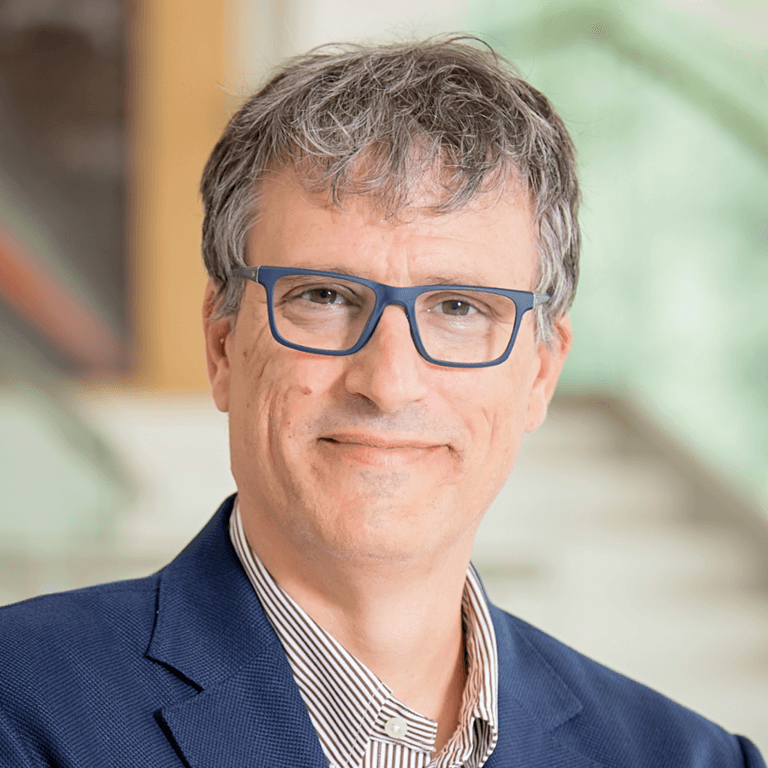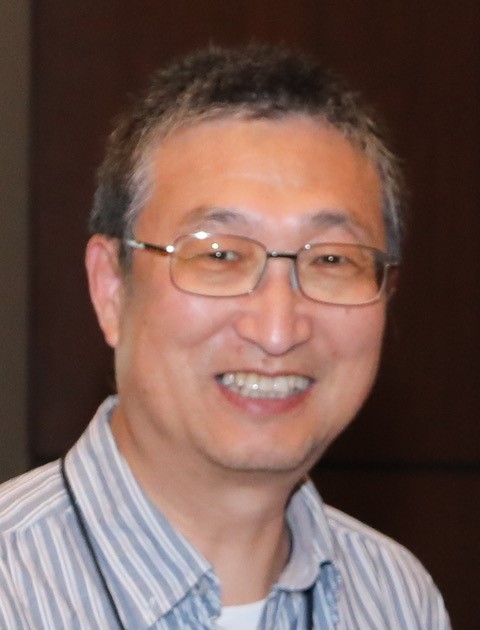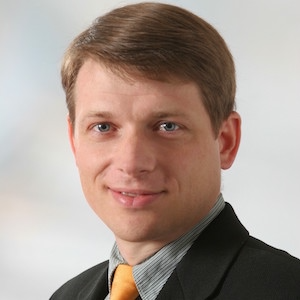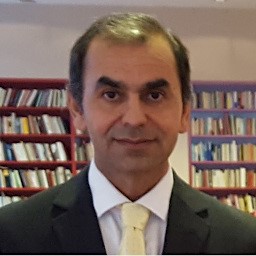Speakers 2023
Keynote Speaker Ⅰ

Prof. Francisco Falcone
UPNA, Institute of Smart Cities (ISC) and Tecnologico de Monterrey
Biography: Telecommunications Engineer (1999) and Doctor in Communications (2005), both from UPNA. From 1999 to 2000, he was Microwave Network Engineer, Siemens-Italtel, Málaga. From 2000 to 2008, he was Mobile Access Network Engineer, Telefónica Móviles, in Pamplona. In 2009 he co-founded Tafco Metawireless, spin-off of the UPNA. In parallel, from 2003 to 2009 he was Assistant Lecturer in the EEC Dept, UPNA. In June 2009 he became Associate Professor and since September 2022, Full Professor. From January 2012 to July 2018 and from July 2019 to November 2021 he was Head of the EEC Dept., UPNA. In 2018 he was Visiting Professor at Kuwait College of Science and Technology, Kuwait, for three months. He is also affiliated with the Smart Cities Institute of the Public University of Navarra, a multidisciplinary research institute with over 100 researchers, being Head of the Institute since May 2021. Since June 2022, he is Distinguished Visiting Professor in Telecommunications School of Engineering and Science, Tecnologico de Monterrey, Mexico. He is specialized in applied and computational electromagnetics, more specifically in: analysis and design of complex electromagnetic media, artificial materials and metamaterials, device implementation in flexible/paper substrates, wireless power transfer systems, implementation of computational electromagnetic code and hybrid code. The work carried out has derived in over 200 articles in ISI-WOK indexed journals, 400 contributions in international and national conferences, 2 books, 6 book chapters and participation in 90 public and private funded projects. Since 2013 he has supervised 8 PhD thesis.
Talk Title: Challenges in Wireless Channel Analysis for future Cognitive Environments
Abstract: The information age is evolving towards the experience age, in which connectivity, data gathering and flexible interactive capabilities are sought for a wide range of applications and scenarios. In this way, Smart Cities and Smart Regions are progressively shifting paradigms from reactive towards proactive responses, aided by large sensor and actuator sets, combined with different information and communication technologies. In this context, wireless communication systems play a key role in order to provide seamless, scalable and to different levels of extent, mobile connectivity. Despite the advantages in the use of wireless channels in order to enable these highly dynamic links, multiple challenges are faced owing to coverage/capacity requirements, interference levels and inherent requirements to reduce form factor, size and cost of communication nodes. Determining wireless channel characteristics and how to optimize their performance is compulsory in order to provide adequate quality of service and quality of experience metrics. In this presentation, we will address the evolution in wireless systems in order to provide required connectivity levels towards cognitive environments, as well as the challenges and solutions that are foreseen.
Invited Speaker Ⅰ

Prof. Hong Zhu
Oxford Brookes University, UK
Biography: Dr. Hong Zhu is a full professor of computer science at the Oxford Brookes University, Oxford, UK, where he chairs the Cloud Computing and Cybersecurity Research Group. He obtained his BSc, MSc and PhD degrees in Computer Science from Nanjing University, China, in 1982, 1984 and 1987, respectively. He was a faculty member of Nanjing University from 1987 to 1998. He joined Oxford Brookes University in November 1998. His research interests are in the area of software development methodologies, including software engineering of cloud-native applications, software engineering of AI and machine learning applications, formal methods, software design, software testing, programming languages, software modelling, and automated software engineering tools and environments, etc. He has published 2 books and more than 200 research papers in journals and international conferences. He is a senior member of IEEE, a member of British Computer Society, and ACM.
Talk Title: Improving Machine Learning Performance via Scenario-Based Functional Testing
Abstract: One of the crucial differences of machine learning (ML) models from software written in programming languages is that they cannot be debugged by editing the model structure or parameters. This imposes a grave challenge in the development of ML applications, because test results cannot be used to improve quality through debugging. Addressing this problem, we propose a scenario-based functional testing approach, which consists of an iterative cycle of discovery, diagnosis, treatment and evaluation. Discovery is exploratory testing aiming at discovering the scenarios in which the model performance is unsatisfactory. It is followed by diagnosis, which further test and statistically evaluate the model to confirm the suspected scenario is indeed weak. Once the problem is confirmed by diagnostic testing, a treatment of the model is performed by retraining the model with additional training data targeting the weak scenario. Finally, after the treatment, the model is evaluated again by testing on the treated scenarios as well as other scenarios to check if the treatment is effective and without side-effects. The talk will discuss the key technics that enable the method to improve the performance on the treated scenario without compromising the performance on other scenarios and conducting testing efficiently and effectively using automated testing tools.
Invited Speaker Ⅱ

Dr. Raimund Kirner
University of Hertfordshire, UK
Biography: Raimund Kirner holds a position as Reader of Cyber-physical Systems at the University of Hertfordshire. He has received his PhD from the TU Vienna in 2003. Raimund Kirner has published more than 100 refereed journal and conference papers and received two patents. His research is on real-time computing, cyber-physical systems and their security aspects. He has been principal investigator of numerous national and European research projects. He is a member of the IFIP Working Group 10.2 (Embedded Systems) and a Senior Member of the IEEE.
Talk Title: Building Ultra-Survivable Robotic Systems using the Empiric Worst-Case Execution Time
Abstract: Building robotic systems often requires adhering to strict real-time requirements in order to enable their smooth operation. To ensure meeting the real-time requirements, a suitable real-time scheduling method is required as well as the worst-case execution time (WCET) of all involved tasks has to be known. Determining the WCET of real-time tasks is a non-trivial problem with modern processors, as they typically facilitate performance-enhancing features like caches and pipelines. The dilemma is that for such modern processors the WCET analysis techniques that are designed to ensure save upper WCET estimates tend to often come with quite high overestimations, causing unnecessary high hardware costs. In contrast, using optimistic WCET analysis techniques would yield a WCET estimate much closer to the real WCET, but at the expense that these optimistic WCET estimates could be underestimations, causing WCET overruns and consequently deadline misses.
We present an approach to overcome this dilemma of safety versus accuracy of WCET estimates.
The basic idea is to use accurate, but potentially optimistic, WCET estimates, and build a real-time scheduling framework around it that is able to handle sporadic deadline overruns by adapting the system. We classify the real-time tasks according to their criticality levels, resulting in a so-called mixed-criticality system. At the same time, we model for each task a utility function, that describes how the utility of the service implemented by this task would decrease if that task would be given less resources than in the ideally case. This reduction of resource budgets can be achieved, for example, by reducing the frequency at which this service is triggered.
We have introduced the concept of an empiric worst-case execution time (EWCET). The idea is that the system is deployed initially with the EWCETs being assigned potentially optimistic WCET estimates, and the EWCETs get updated at runtime, should any overrun of the current EWCET estimate happen. This concept of the EWCET is truly simple, but the challenge is to build a mixed-criticality scheduling system that can adjust at runtime to these potential EWCET overruns. In particular, we assume a mixed-criticality taskset with an arbitrary number of criticality levels. Based on that, any EWCET overrun of a task with a criticality level $n$ is guaranteed to not interfere with the timeliness of any task with a higher criticality level.
We call this mixed-criticality system E-ATMP, with the 'E' standing for the use of EWCET.
Our simulations with realistic mixed-criticality tasksets show that E-ATMP can provide a smooth performance degradation of the overall system, rather than simply dropping a number of tasks completely. E-ATMP is designed to provide a smooth performance degradation in case of any kind of resource shortage, not only overruns of WCET estimates. For example, if the system uses multiple computing elements, it could also cope with the scenario of individual computing elements failing. Another usage scenario would be energy preservation, where the processor speed would be intentionally slowed down, in order to increase the runtime of a battery-powered system. E-ATMP is designed to provide ultra-survivable robotic systems.
Invited Speaker Ⅲ

Dr. Muhammad Younas
Oxford Brookes University, UK
Biography: Dr. Muhammad Younas is a Associate Professor in Computer Science at the School of Engineering, Computing and Mathematics, Oxford Brookes University, Oxford, UK. He has significant experience of research in the areas of cloud computing, big data, web technologies, and services computing. He has published more than two hundred papers in international journals, conferences, workshops and books. His work is published/cited in top-ranked Computer Science journals and conferences. He has delivered keynote talks at various international conferences. He is on the review panel of national and international funding councils. He is on the editorial board of various international journals. He has served as a chair of organizing and program committees of highly reputed international conferences. He has also served on a large number of technical program committees of international conferences. He is the member of IEEE Computer Society, IEEE Technical Committee on the Internet, IEEE Systems, Man, and Cybernetics Society, and IEEE Technical Committee on Services Computing.
Talk Title: Cloud Services Selection and Research Challenges
Abstract: Cloud services are delivered over the Internet and are consumed on on-demand or pay-as-go basis. With the flexibility and scalability of cloud computing, the number of cloud services has significantly been increased in recent years. Cloud providers offer various services (email, data storage, document sharing, video conferencing, networking) to cloud consumers but with varying levels of Quality of Service (QoS). Thus, selecting appropriate cloud services has become a challenging task for cloud consumers. This talk will explore cloud service selection tools and techniques by taking into account the distinguishing characteristics of cloud services. It will discuss the development of a framework for cloud service selection and also identify various research challenges.
